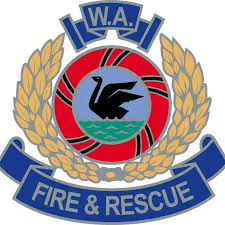First Responders
Stressed Out?
No longer feeling bullet-proof on the front-line of emergency services? You are not alone.
Increasingly first responder organisations are recognising front-line employees can burn out under the accumulated stress of their daily challenges.

The NSW Ambulance Service notes, for example, on its official website: “Ambulance staff and volunteers face the prospect of dealing with the traumatic effects of injury or death on a daily basis. While paramedics and operations centre staff are more likely to experience such situations, any employee may also be exposed to a trauma.”
Traumatic incidents for Ambulance staff may include:
- Major incidents or disasters.
- Multiple deaths on-scene.
- Prolonged or failed rescue.
- Massive trauma/multiple trauma incidents.
- Suicide or violent death.
- Assault or threat to an employee’s personal safety.
- Serious injury or death of a child, victims or relatives known by staff, an emergency services worker or an employee while at work.
Symptoms
If you’ve been involved in a traumatic incident, you may need help to manage your reactions. This is normal and it’s OK to ask for help. (Further) A person should seek support if after a month they:
- still feel upset or fearful most of the time
- act very differently to how they did before the event
- find it difficult to work or take care of children
- have ongoing difficulties with important relationships
- use alcohol or drugs to excess
- feel jumpy or are having nightmares
- can’t stop thinking about the event or appear to no longer enjoy life, feel numb or shut off.
Solace
The research on the positive effect meditation and mindfulness can have on Post Traumatic Stress Disorder or PTSD is now well established. But there are in reality challenges too when employees fear
Learning meditation and mindfulness can be done these days as cold online experience with one-size-fits-all applications. It is best learned and integrated into one’s life with an experienced and empathetic teacher face to face. And it can be done privately without necessarily letting
Course Options
I offer both group courses and or confidential one-on-one consultations.
DISCOUNT course rate for first responders.
Six private individual sessions for public group course rate of $350. Or join a public small group six-week Introduction to Meditation class for $300.
If paid by an organisation full standard course fees apply.
Check Course Information or contact Kevin.
0408 344 663
kevin@perthmeditation.com.au
Where relevant, on-site sessions and courses are also a workplace option.
The course was fantastic and immensely practical.
The techniques I learned allowed me some detachment emotionally and an ability to take whatever happens in my stride. A lifesaver for sure for someone on the frontline of what is
often a really difficult but rewarding job serving the public.
I did not expect much from meditation having tried it online but Kevin’s personal and empathetic skills have brought meditation and mindfulness into my daily routine. It is, as he says, a shower for the mind! Work is still
stressful and I now can cope.
Kevin’s meditation course changed all that.
It’s something I do before a shift and immediately feel much calmer and in control no matter what happens.
